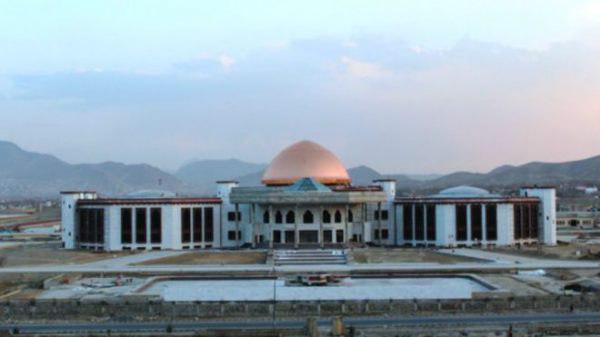The annual budget statement of the government recently reviewed by the Parliament’s commission on budget and financial affairs suggests that billions of Afghanis have been spent without the required approval of the parliament during the Fiscal Year 1397– contrary to the principles and policy of budget expenditure.
According to the principles, the budget expenditure plan cannot be changed. If needed, the Ministry of Finance (MoF) is allowed to bring changes in appropriations of less than five percent of the total budget, albeit after acquiring the parliament’s approval.
As the commission’s report for the parliament’s general assembly indicates, 53 institutions of the Afghan government have committed violations of law and principles over the course of 1397 fiscal year.
Describing the violations as “crime and national treason”, Khan Aqa Rezaei, a member of the parliament, argued that it has left negative impacts on the economy and investment across the country.
The annual budget statement known as Qatia or the final account for previous fiscal year is prepared by Afghanistan’s Supreme Audit Office and must be reviewed by the parliament before approving the national budget plan for next fiscal year.
While the MoF has already sent the draft budget plan for the Fiscal Year 1399 to the parliament, MPs are now asking the government to provide clarifications on the violations it has made in budget expenditure during the previous fiscal years.
Violations
According to the parliament’s budget and financial commission, the President Protective Service (PPS), Office of the Chief Executive, and the National Directorate of Security (NDS) have consumed one billion and 27 million Afghanis which is explicitly a violation of the approved principles for budget expenditure. The commission further details that the amount has been illegally transacted from operative budgets of the Ministry of Defense (MoD), Ministry of Interior (MoI), NDS, and the National Security Council.
While article 15 of the budget expenditure code stipulates that fund transfer is not allowed from other accounts to the operative budget accounts. Meanwhile, the MoF argues on its website that such transfer is not in contradiction to the article 15 upon “instruction” by the authorized officials.
Moreover, the MoF has executed advance payments for the government agencies which have not provided the required clearance report over “advance payments” they have received over past 17 years. According to the expenditure code, all budgetary units are obliged to provide clearance report on their advance payments prior to the end of every fiscal year.
The MoF, however, assures of not wasting public assets saying that most of the agencies have provided the required clearance for past year while other agencies pledged to prepare the clearance report within a certain period.
As per the report of the parliament’s commission, the government’s institutions have also come short of spending their allocated budgets on development projects.
Creating over 2,000 additional posts
Findings of the commission suggest that 13 budgetary units have created over 2,000 “illegal posts” within their structure during the fiscal year 1397. The budgetary units are namely Administrative Office of the President, Ministry of Education, MoF, Independent Directorate of Local Governance, Attorney General’s Office, National Statistics and Information Authority, Supreme Audit Office, Supreme Court, Ministry of Industry and Commerce, Gas and Petroleum Authority, Technical Vocational Education and Training authority of the education ministry, and Afghanistan Central Civil Registration Authority.
But the expenditure code clearly stipulates that the governmental agencies need to build their structure or Tashkil – all official posts and executive units within an agency – based on the limitation set by the parliament. It further specifies that the agencies must not create additional posts during the fiscal year.
According to the parliament’s commission, the MoF has transferred funds of 189 projects for different purposes which is also in contradiction to the expenditure code.
The total illegal transactions carried out over 1397 fiscal year amount to nearly 2.5 billion Afghanis, according to the report of the parliament’s commission on budget and financial affairs.
Issuing an investigative report on September 26, the daily Etilaat-e-Roz revealed that the government has illegally consumed millions of Afghanis from its contingency code 91 during 1396 and 1397 fiscal years, mostly for paying protection and living costs of high government officials and political figures.
Given the committed violations, the parliament’s commission has asked for legal prosecution of the authorities involved in those violations.
Issuing a statement, the MoF has responded to the report of the parliament’s commission that every changes or transfer made in the budget expenditure plan were in line with the endorsed laws.




